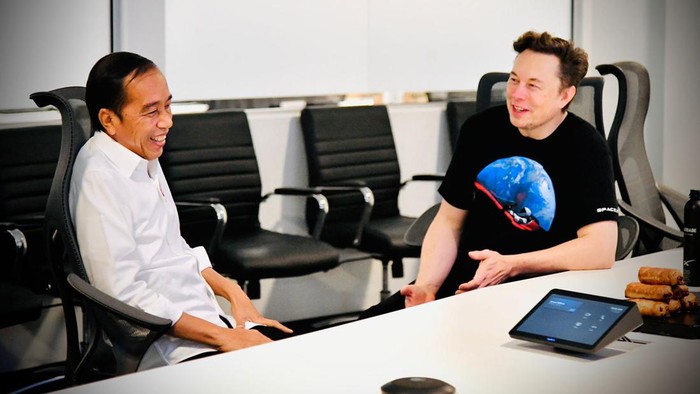UNAIR NEWS – The meeting between the President of the Republic of Indonesia, Joko Widodo (Jokowi), with Tesla and SpaceX CEO Elon Musk at the Stargate SpaceX Building a few days ago led to many questions. The Lecturer of Faculty of Economics and Business Universitas Airlangga (UNAIR), Dr Unggul Heriqbaldi SE MSi MAppEc, stated that Elon Musk’s investment opportunity through his companies Tesla and SpaceX in Indonesia is tremendous.
There is an enormous opportunity because Indonesia is the biggest nickel producer country in the world. “Surely, this will greatly impact companies that produce electric vehicles such as Elon Musk’s. As the best player in the industry and in the global market, companies will never stop finding a more efficient way to produce their outputs,” stated Unggul.
However, Unggul explained that investment consideration is not only determined by the availability of key resources but also by other aspects supporting the investment. Such as infrastructure, energy, and regulations offered by the government such as tax allowance and exemption, flexibility in the workforce market, ease in permits, and other aspects.
“So hopefully both parties could get the best deal, and Indonesian civilians could get the best benefit from every decision made by both parties,” he explained.
Tesla and SpaceX investment
According to Unggul, the biggest medium-term opportunity is the investment to produce lithium-ion battery cells needed by Tesla for electric vehicle production. It is highly possible because Indonesia is a country with the world’s largest nickel reserves and the largest nickel producer globally, with a 37 percent share of the world’s production or equivalent to 2.7 million metric tons.
Furthermore, Unggul argued that investment in electric batteries in Indonesia would make Tesla gain benefits from resource abundance or cost competitiveness. It is crucial for Tesla to maintain competitiveness in the electric vehicle market of the world.

Unggul also mentioned that Indonesia has medium-term potential in the electric vehicle market. “Though from the market side, Indonesia is far left behind compared to other advanced countries such as Norwegia, Iceland, Sweden, The Netherlands, Germany and England. It’s not impossible, with a government policy that is amiable towards electric vehicle market, Indonesia will become a country with high growth in the electric vehicle markets,” Unggul revealed.
He added that Indonesia’s position could also be strategically viewed from the potential demand in the medium and long term from the electric vehicle market.
Then for SpaceX itself, because nickel is also an essential component in alloying elements, which many industries from power generation, kitchenware to transportation could use, it confirmed that investment in Indonesia is strategic to SpaceX, which works around rocket launchers and spacecraft.
Benefits to Indonesia
Unggul argued that Elon Musk’s investment in Indonesia would provide some benefits to Indonesia. First, the global wave regarding environmentally-friendly vehicles is getting more massive year by year.
“If Tesla, the largest electric vehicle producer in the world, invests in Indonesia, Indonesia will enter the electric vehicle industry and market landscape in the world,” he revealed.
It will impact the nickel ore product downstream export potential, which is getting more significant in the roadmap and Indonesia’s government policy, to increase added domestic value on exported products. Moreover, jobs will be created with higher skillsets and spillover effect for other horizontally related industries in Indonesia.
Second, it is not impossible that the availability of lithium-ion battery cells in domestic industries, the industry and the electric vehicle market in Indonesia will grow faster. According to Unggul, with a greater scale of investment in lithium-ion battery cells, battery prices will be more competitive in domestic markets. The improvement of the domestic electric vehicle industry will boost job creation and export because of Indonesia’s comparative advantages. (*)
Author: Tristania Faisa Adam
Editor: Binti Q Masruroh









